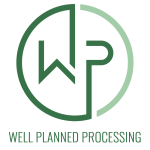The Origins of Homeschooling:
From Legal Battles to a National Movement
A prelude: parental rights before “homeschooling” had a name
Homeschooling didn’t emerge from catalogs or conferences. It grew out of kitchen tables, courthouse steps, and decades of determined parents who were willing to face fines, jail time, or worse for the freedom to educate their children at home. Understanding those roots matters, because today’s homeschool market still carries the DNA of those struggles: a fierce loyalty to trusted brands, a reliance on networks over advertising, and a strong filter of worldview and philosophy when making decisions.
This is the backstory—the foundation every marketer should understand before stepping into the homeschool world.
Parental Rights Before Homeschool Had a Name
Long before the modern movement, American courts affirmed that parents—not the state—hold primary responsibility for their children’s education. In 1925, the U.S. Supreme Court struck down Oregon’s compulsory public-school law in Pierce v. Society of Sisters, declaring that “the child is not the mere creature of the State.” Nearly fifty years later, in Wisconsin v. Yoder (1972), Amish parents won the right to withdraw their children from high school on religious grounds.
Exclusive Client Access
I hope you’ve enjoyed this glimpse into the origins of homeschooling — where conviction, courage, and the fight for parental rights shaped a movement that still defines how families think and choose today. In the full article, we trace how legal battles, reformers, and shifting policies transformed homeschooling from a grassroots fight for freedom into one of the fastest-growing education markets in the nation.
Our Marketing Insights Division is home to a growing library of in-depth research, strategy frameworks, and case studies built from over two decades of homeschool industry expertise.
These resources are reserved for active Well Planned Advertiser clients, providing exclusive access to:
- Deep market intelligence on the values, history, and mindset shaping homeschool families
- Proven strategies for reaching parents across digital, print, and community channels
- Insights on shifting education trends, funding models, and emerging marketing technologies
- Forward-looking analysis to help brands anticipate change and position for long-term growth
If you’re not yet a client, you can still preview a portion of each article below — or book a strategy call to learn more about partnership access.
About the Author
Rebecca Scarlata Farris
With nearly 35 years in the homeschool world — first as a student, then as a mom of five, and now as a business owner — Rebecca has dedicated her career to helping families thrive. She launched Family magazine, created the first Well Planned Day Planners, and pioneered digital conventions and tools that reshaped how homeschoolers connect and learn.
Today, as the founder of Well Planned Advertiser, she blends her deep community insight with technology and strategy to build systems that help homeschool businesses reach families with precision.






